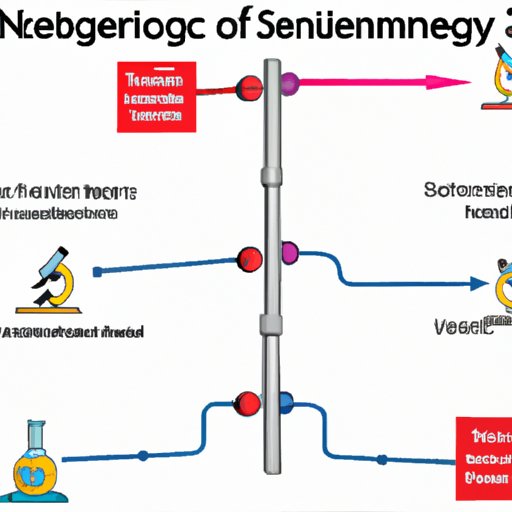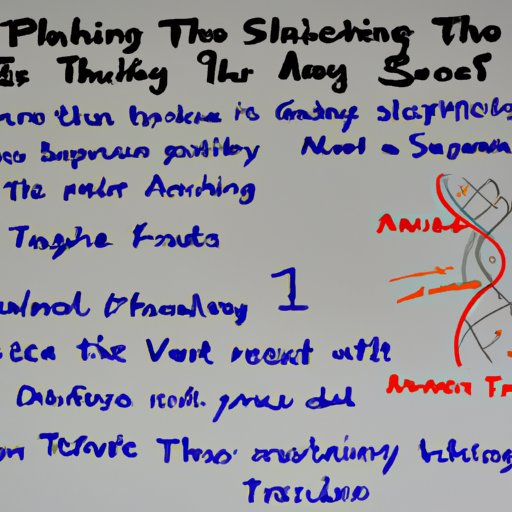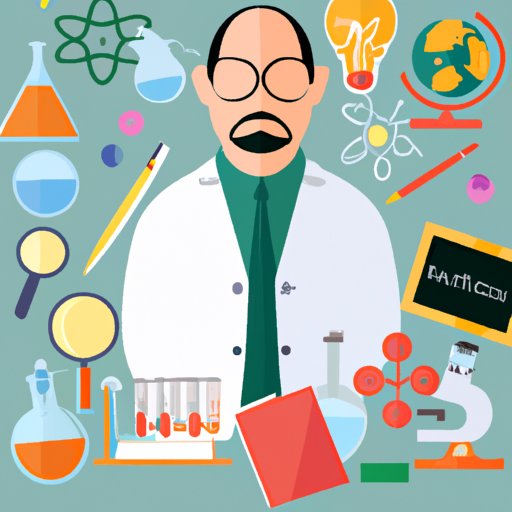Introduction
High school science teachers play an important role in preparing students for further scientific study. They are responsible for teaching students in grades 9-12 about various sciences, such as biology, chemistry, physics, and earth science. High school science teachers must have strong knowledge of their subject area and be able to effectively communicate complex concepts to their students. In addition, they must have excellent organizational and classroom management skills. This article will explore the qualifications and certifications needed to become a high school science teacher, the benefits and challenges of the profession, and examples of successful high school science teachers.

Education and Training Necessary to Teach High School Science
In order to teach high school science, you must have a degree in a scientific field. Most states require high school science teachers to have at least a bachelor’s degree in science, although some states may require a master’s degree. You should also consider taking additional courses in education or obtaining a teaching certificate in order to meet your state’s requirements for becoming a high school teacher.
In addition to educational qualifications, high school science teachers must also participate in professional development opportunities. These can include attending conferences, workshops, or seminars related to science teaching. Professional development opportunities are essential for staying up to date with the latest research and teaching methods.
Benefits and Challenges of Becoming a High School Science Teacher
Teaching high school science can be both rewarding and challenging. On the one hand, it offers the opportunity to work with young people and help them gain a deeper understanding of scientific concepts. Additionally, teaching science in a high school setting allows you to connect with students on a personal level and make a lasting impact on their lives.
On the other hand, teaching high school science can be difficult. It requires a great deal of patience and dedication, as well as an ability to effectively manage a classroom. Additionally, there are often limited resources available for teaching science, which can make it difficult to keep up with the latest research and teaching methods.

Importance of Staying Current with Scientific Research and Methods
In order to be a successful high school science teacher, it is important to stay current with scientific research and methods. There are many modern teaching techniques that can be used to engage students and make learning more effective. For example, incorporating hands-on activities and experiments into lessons can help students understand difficult concepts. Additionally, using technology in the classroom can help bring scientific topics to life.
There are also numerous resources available to help teachers stay informed about the latest developments in science. Keeping up with professional journals and online publications can help teachers stay abreast of new discoveries and teaching methods. Additionally, attending conferences and workshops can help teachers network with other educators and find out about best practices.
Examples of Successful High School Science Teachers
To get an idea of what it takes to be a successful high school science teacher, it is helpful to look at examples of successful teachers. Many experienced teachers recommend connecting with students on a personal level and finding ways to make learning fun and engaging. Additionally, setting clear expectations and providing consistent feedback can help students understand difficult concepts.
For example, one successful high school science teacher recommends creating a “safe space” for students to ask questions and discuss ideas without fear of being judged. She also encourages her students to use technology in the classroom and to take advantage of online resources to further their understanding of scientific concepts. Finally, she emphasizes the importance of staying current with scientific research and methods in order to keep lessons interesting and relevant.

Advantages of Teaching Science in a High School Setting
Teaching science in a high school setting has many advantages. One of the most important is the ability to connect with students on a personal level and make a positive impact on their lives. Additionally, teaching science in a high school setting allows teachers to explore complex topics in greater depth and provide students with a more comprehensive understanding of scientific concepts. Finally, teaching in a high school setting provides teachers with the opportunity to collaborate with other educators and share best practices.
Conclusion
Becoming a high school science teacher requires a strong knowledge of the subject area and a commitment to staying current with scientific research and methods. It is also important to have excellent organizational and classroom management skills. The rewards of teaching high school science include the opportunity to work with young people and help them gain a deeper understanding of scientific concepts. If you have the qualifications and dedication necessary to become a high school science teacher, then pursuing this career can be a rewarding experience.
(Note: Is this article not meeting your expectations? Do you have knowledge or insights to share? Unlock new opportunities and expand your reach by joining our authors team. Click Registration to join us and share your expertise with our readers.)
